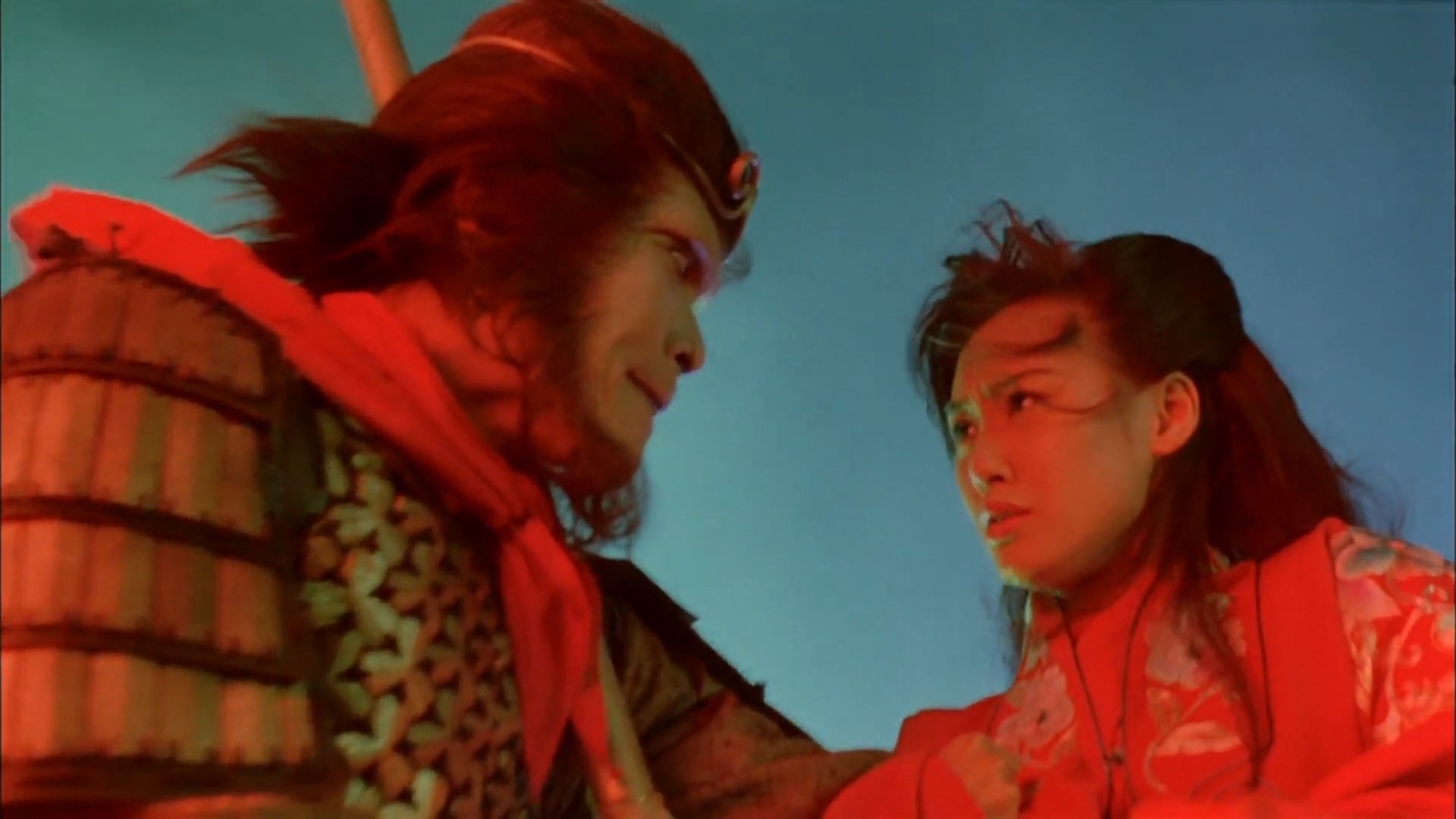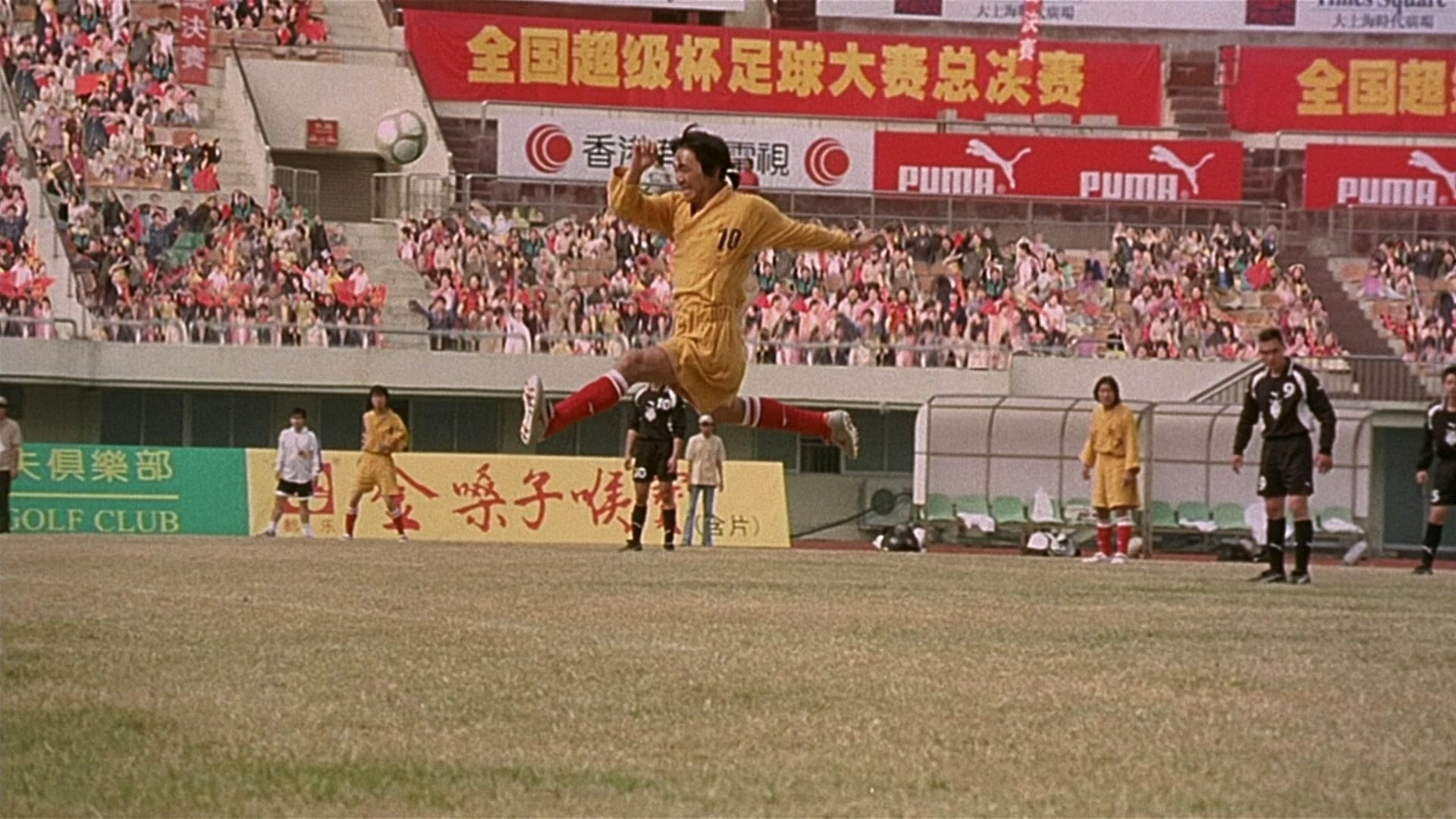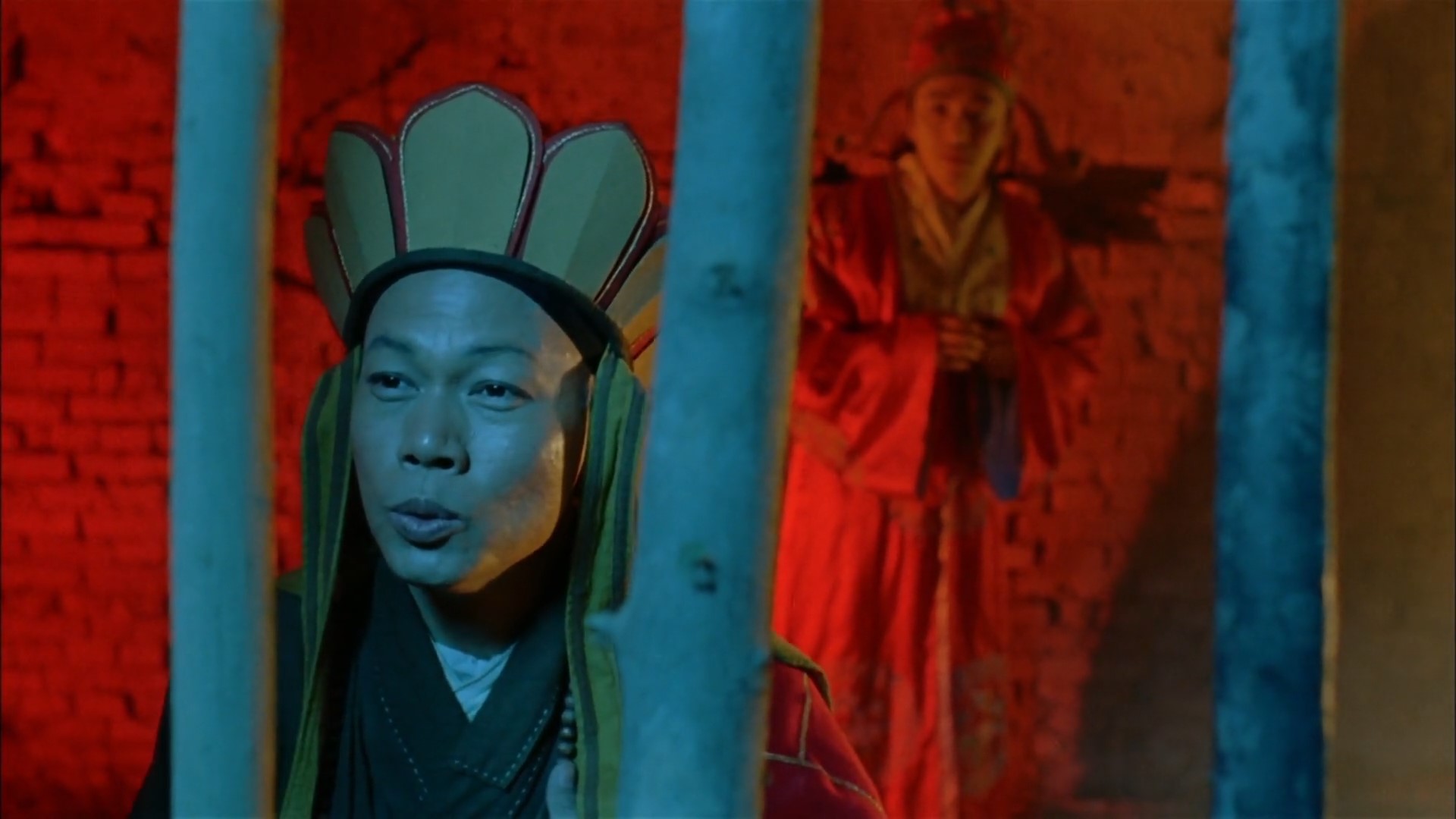This blog post is an in-depth analysis of Joo’s films and a systematic explanation of his cinematic universe. His most famous films, including Seo Yoo Ssang Ki, show that his films are not just comedies.
Getting into the movie analysis
I first encountered Zhu’s films when I was in the second grade of middle school, when I was obsessed with Hong Kong gambling movies (Dao Xin, Dao Sheng, etc.). I was mesmerized by the gambling skills and gripping performances of the protagonists, and I was fascinated by the cool gambling skills and cool looks of Zhu Yunbal and Yoo Deuk-hwa, but the ridiculous gambling skills and ridiculous dialogues of Wong Kar-wai made me think that Wong Kar-wai’s movies were low-quality comedies, rather than the cool skills and dialogues. A chance encounter with Jim Carrey’s Hong Kong Mask also reinforced my preconceived notions about the movie. The shoddy special effects and the unattractive appearance of Jim Carrey made the movie seem cheesy rather than funny.
I’ve since heard polarizing opinions about the film, ranging from enthusiastic praise to condemnation of it as a low-quality comedy, and I’m inclined to agree with the latter and stopped watching it. However, when I happened to see Journey to the West on a cable channel, I was reminded of my favorite Journey to the West novels. I was worried that Zhu would ruin Journey to the West with his trademark lowbrow comedy, but after watching the movie, my worries disappeared without a trace. After watching the entire movie, I found Zhu’s lines, gestures, and facial expressions, which I had previously thought were bad, to be very funny and interesting.
After that, I often watched reruns of Journey to the West on cable TV, and each time I found new meaning and fun. I also learned more about his other movies, such as Six Gods, The King of Comedy, and The King of Destruction, and realized that he is very influential and popular not only in Korea but also in Hong Kong. Most importantly, many people recognized that the genre of Joo’s films cannot be simply described as comedy, and many people refer to his films separately as the Joo-Sung-Chi genre. In this article, I’d like to take this opportunity to seriously and systematically analyze why Zhu’s films cannot be simply described as slapstick or parody comedies, and why his films should be categorized as Zhu’s genre.

General genre classification of Journey to the West & Wolgwang Bo-hap
The film, based on the fantasy novel Journey to the West, is not about Goku’s adventures or growth, but rather about the love that Jizonbo experiences before he becomes Goku, and how he realizes the truth of life and returns to Buddhism through the transience of love that transcends humans and monsters. The genre of Journey to the West is described in the movie’s introduction as a science fiction comedy. The movie combines the story of the protagonist, which unfolds over 500 years of time and space, the Wolgwang Bohap (time machine) that freely travels back and forth between the past and future, the clouds, and the appearance of ghosts and gods, along with the comical performances of the characters. Journey to the West, along with Zhu Shengqi’s films made before Shaolin Soccer (Hong Kong Leong, Hong Kong Mask, etc.), is made with crude SF technology, making it feel more like a comedy than a science fiction movie. In particular, among the comedy genre, I think it is closest to parody comedy.
The genre characteristics of parody comedy films are categorized by the type of characters. First, the characters are schizophrenic. They have conversations that don’t make sense or don’t relate to each other, and their behavior is almost pun-like. Second, characters are somatic. They use their bodies in ways that are not common sense, such as abusing them or using them like machines. Third, the use of visual icons. Infantile icons (children’s items, repetition of childish props, exaggerated icons) are used. These parodic comedies offer the audience the deviant pleasure of what Roland Barthes called the pleasures of the plaisir, the subversion of all normative things that do not serve any purpose. The plot structure of parody comedies abandons rational narrative structure in favor of a structure that connects the scenes of parodied episodes. This structure creates a unique sense of anticipation that forces the audience to focus on the moment-to-moment scenes rather than expecting a logical chain of events.

What is a Zhu Shengqi movie?
If you take a look at some of Zhu’s best-known films, such as Six Gods, The King of Comedy, and Shaolin Soccer, there are a few commonalities. First, they embody the characteristics of parodic comedy. The protagonists and surrounding characters in his films are characters that defy common sense. They are elite aspiring actors who have studied acting abroad, but in real life, they live a third-rate life coaching thieves and hostesses to act (The King of Comedy), or a man who once had absolute power in the culinary world but lost everything and became a third-rate chef (Sikshin). These characters abuse their bodies to provoke laughter. But his movie is different in that he doesn’t make movies for the sake of parody, but rather creates parody as a condiment to make the movie more palatable.
Second, there is Joo Sung-chi and his friends. Not just any actor with good looks and physical attributes, Joo Sheng-chi plays the role of a fool to a dashing nobleman, sometimes a beggar to a gentlemanly English gentleman, and sometimes a loyalist concerned about the well-being of his country. His supporting cast of regulars (Wu Meng-dal, Zhang Min, Mak Wen-yu, director Yu Yun-yu, and Lee Eun-yin) make his movie even better. They are the reason why the movie is not a mainstream movie, but a mainstream kind of movie.
Third, the movie is not about heroes, but about everyday people. Zhu depicts the lives of ordinary people in a way that is both comical and touching. In his films, powerful figures are ridiculed for their authority, pretentiousness, and corruption, and eventually their pretense and corruption are exposed and they are brought down to the world of ordinary people.
Fourth, the harmony between seriousness and emotion. On the surface, Zhu’s films may seem like silly toilet comedies, but they are deeply serious and moving. His movies are special in that the seriousness is not just set up for laughs, but is genuine.

General characteristics of Zhu’s films in Journey to the West
The characters in Journey to the West are the friends of the Juxtaposition. Each of them lacks something important, and normal logic doesn’t apply to them. They show physical abuse and exaggerated acting typical of parody comedies. In addition, the “onliu” that the three lawyers call each other is an unapologetic expression of parodic comedy.
Ji Zongbo is the leader of a group of bandits with a big mouth, and he is portrayed as a helpless husband trying to get the moonlighting bohap to save his beloved wife. The movie exposes the cowardice of those with power and wealth, and offers a poignant indictment of the greed of vested interests.
Zhu’s films are not just meant to make you laugh, but they are also serious and touching, making you realize the meaning of love and life. The melodramatic scenes in Zhu’s movies add to the seriousness and emotion. He is not just a comic actor, and his movies have a message to save us from our endless greed and resentment.
Conclusion
Zhu Shengqi’s films are based on the characteristics of the parody comedy genre, but he uses parody comedy as a spice to express his own unique cinematic world. His films show the unreality of reality and its inability to be explained by logical cause-and-effect through randomness and deviations from logic. The film is the ultimate example of Zhu Shengqi’s cinematic mastery, where his unique performances and the development of the screenplay combine to create the ultimate movie.
Praise for Hong Kong or Chinese cinema tends to be limited to the noir genre, such as Woo Sam, and directors who have won awards at prestigious international film festivals, such as Zhang Yimou. For those who have a preconceived notion that Zhu’s films are childish, I hope they will take his films at face value and focus on the message he is trying to express.
 I’m a blog writer. I want to write articles that touch people’s hearts. I love Coca-Cola, coffee, reading and traveling. I hope you find happiness through my writing.
I’m a blog writer. I want to write articles that touch people’s hearts. I love Coca-Cola, coffee, reading and traveling. I hope you find happiness through my writing.